EGOV-CeDEM-ePart 2022 PROGRAMME
Updated 6th of September
(click here to download the full programme)
Monday 5 September
PhD Colloquium – Onsite for invited participants only
Chairs: Ida Lindgren & J. Ramon Gil-Garcia
Tuesday, 6 September
| 8.30 – | REGISTRATION at the Zenit Building, Campus Valla, Linköping University | ||
| 9.00 – 10.30 | Welcome and Opening (ONSITE ONLY)
Keynote Speech: Frank Bannister Location: Studenthuset, Lövverket |
||
| 10.30-11.00 | Coffee break
Zenit, Zero |
||
| 11.00-12.30 | Session 1 (onsite/online)
Studenthuset, Flexsal A |
Session 2 (onsite/online)
Studenthuset, SH62 |
Session 3 (onsite/online)
Studenthuset, SH63 |
| 12.30-13.30 | Lunch
Zenit, Zero |
||
| 13.30-15.00 | Workshop I (onsite only)
Studenthuset, Flexsal A |
Session 4 (onsite/online)
Studenthuset, SH62 |
Session 5 (onsite/online)
Studenthuset, SH63 |
| 15.00-15.30 | Coffee break
Zenit, Zero |
||
| 15.30-16.50 | Session 6 (onsite/online)
Studenthuset, Flexsal A |
Session 7 (onsite/online)
Studenthuset, SH62 |
Session 8 (onsite/online)
Studenthuset, SH63 |
| 17.00-18.00 | IFIP 8.5 Business meeting (onsite/online)
Zenit, Zero |
||
| 18.15 | Bus for Welcome Reception – the bus departs from the A-building (look for the Taxi sign). | ||
| 18.30 | Welcome Reception at Linköping Castle
Lasts approx. 1 hour – Afterwards, dinner on your own. |
||
Wednesday, 7 September
| 8.30 – | REGISTRATION at the Zenit Building, Campus Valla, Linköping University | ||
| 9.00-10.30 | Keynote Speech: Anders Stridh (ONSITE ONLY)
Best Paper Award Studenthuset, Lövverket |
||
| 10.30-11.00 | Coffee break
Zenit, Zero |
||
| 11.00-12.30 | Session 9 (online presentations)
Studenthuset, Flexsal A |
Session 10 (onsite/online)
Studenthuset, SH62 |
Session 11 (onsite/online)
Studenthuset, SH63 |
| 12.30-13.30 | Lunch – Including poster session
Zenit, Zero |
||
| 13.30-15.00 | Session 12 (onsite/online)
Studenthuset, Flexsal A |
Session 13 (onsite/online)
Studenthuset, SH62 |
Session 14 (onsite/online)
Studenthuset, SH63 |
| 15.00-15.30 | Coffee break
Zenit, Zero |
||
| 15.30-17.00 | Session 15 (onsite/online)
Studenthuset, Flexsal A |
Session 16 (onsite/online)
Studenthuset, SH62 |
Session 17 (onsite/online)
Studenthuset, SH63 |
| 18.30-22.00 | Conference Dinner – Linköpings festvåning
(For those who wish: meet-up by the entrance of Elite Stora Hotellet, at 18.15, for a joint walk to the venue.) |
||
Thursday, 8 September
| 8.30 – | REGISTRATION at the Zenit Building, Campus Valla, Linköping University | ||
| 9.00-10.30 | Session 18 (onsite/online)
Studenthuset, Flexsal A |
Session 19 (onsite/online)
Studenthuset, SH62 |
Session 20 (onsite/online)
Studenthuset, SH63 |
| 10.30-11.00 | Coffee break
Zenit, Zero |
||
| 11.00-12.30 | Session 21 (onsite/online)
Studenthuset, Flexsal A |
Session 22 (onsite/online)
Studenthuset, SH62 |
Session 23 (onsite/online)
Studenthuset, SH63 |
| 12.30-13.45 | Lunch
Zenit, Zero |
||
| 13.45-14.45 | Session 24 (onsite/online)
Studenthuset, Flexsal A |
Session 25 (onsite/online)
Studenthuset, SH62 |
Session 26 (onsite/online)
Studenthuset, SH63 |
| 14.45-15.15 | Coffee break
Zenit, Zero |
||
| 15.15-16.00 | Closing (onsite/online)
Keynote Speech: Fredrik Heintz Key-huset, Key 1 |
||
| 16.45 -17.45 | Guided Tour in Gamla Linköping
For those who have signed up for the guided tour, we’ll walk together from campus at 16.15 – meeting point: the entrance of Zenit. |
||
Full program
Tuesday, 6 September
| 9.00- 10.30 | Studenthuset, Lövverket
Welcome and opening Welcome by Local Hosts, Conference Chairs and IFIP WG8.5 chair Welcome by Prof. Karin Axelsson, Deputy Vice-Chancellor Keynote speech: Frank Bannister Chair: Ida Lindgren |
| 10.30-11.00 | Zenit, Zero
Coffee break |
| 11.00-12.30
|
Studenthuset, Flexsal A
Session 1 – Opportunities and challenges and benefits Chairs: Marijn Janssen & Ida Lindgren
Muhammad Afzal and Panos Panagiotopoulos. Coping with Opportunities and Challenges of Smart Policing: A Research Model (best paper nominee)
Flemming Götz and Maria A. Wimmer. Challenges and Potentials of the Use of Convertibles in Emergency Management
Ana Paula dos Santos Tavares, Marcelo Fornazin and Luiz Antonio Joia Luiz. Health Fake News and the Covid-19 Pandemic in Brazil |
| Studenthuset, SH62
Session 2 – Data sharing and digitalization Chairs: Csaba Csáki & Ida Lindgren
Iryna Susha, Jakob Schiele and Koen Frenken. Business-to-Government Data Sharing for Public Interests in the European Union: Results of a Public Consultation
Joaquín Santuber, Reem Abou Refaie and Christoph Meinel. Interrogating e-Justice: Lessons from Digitalizing Courts in Chile (best paper nominee)
Igor Sampaio, Eduardo Andrade, José Viterbo Filho and Flávia Bernardini. Assessing the Quality of Covid-19 Open Data Portals (best paper nominee) |
|
| Studenthuset, SH63
Session 3 – e-Democracy & e-Participation Chairs: Robert Krimmer & Peter Parycek
Daniil Buryakov, Mate Kovacs, Victor Kryssanov, and Uwe Serdült. Using Open Government Data to Facilitate the Re-Design of Voting Advice Applications
Christian Daniel Gutowski and Jing-Heng Kao. Investigating Trust and Risk Perceptions in a Hybrid Citizen Journey
Martin Karlsson, Marius Rohde Johannessen and Mette Sønderskov. A survey of young people’s sentiment towards local democratic innovations |
|
| 12.30-13.30 | Zenit, Zero
Lunch |
| 13.30-15.00 | Studenthuset, Flexsal A
Workshop I (onsite) Efthimios Tambouris and Evangelos Kalampokis. The Sustainable Implementation of Co-creation Principles and Outcomes |
| Studenthuset, SH62
Session 4 – Worldwide E-governments Chairs: Ida Lindgren & Marijn Janssen
Shegaw Anagaw Mengiste, Konstantinos Antypas, Marius Rohde Johannessen, Jörn Klein, Gholamhossein Kazemi and Jens Kassbøll. Research Landscape and Research Priorities in eHealth in four African Countries- A survey
Wivian Alves dos Reis Correa, Gabriela Yukari Iwama, Marilia Miranda Forte Gomes, Glauco Vitor Pedrosa, Wander Cleber Pereira Silva and Rejane Maria da Costa Figueiredo. Evaluating the Impact of Trust in Government on Satisfaction with Public Services
Thomas Schoegje, Arjen de Vries and Toine Pieters. Adapting a faceted search task model for the development of a domain-specific council information search engine |
|
| Studenthuset, SH63
Session 5 – ICT and Sustainability Development Goals Chairs: Jolien Ubacht & Iryna Susha
Tove Engvall and Leif Skiftenes Flak. Affordances of e-reporting in digital governance on a supranational level: The case of Reportnet
Cristina Alcaide Muñoz, Laura Alcaide Muñoz and Manuel Pedro Rodríguez Bolívar. Strategic Alignment of Open Government Initiatives for achieving SDGs in Andalusia
Zsofia Kräussl, Ziv Baida, Suzanne Post, Boriana Rukanova and Yao-Hua Tan. Digital Infrastructures for Monitoring Circular Economy Investments by Financial Institutions and Government: A Research Agenda |
|
| 15.00-15.30 | Zenit, Zero
Coffee break |
| 15.30-16.50 | Studenthuset, Flexsal A
Session 6 – Emerging Issues and Innovations Chairs: Marijn Janssen, Csaba Csáki & Francesco Mureddu
Sander Van Damme, Peter Mechant, Eveline Vlassenroot, Mathias Van Compernolle, Raf Buyle and Dorien Bauwens. Setting the Research Agenda for Personal Data Spaces: Synthesis of a Community Driven Process
Tiago Lima, Kellyton Brito, André Nascimento, George Valença and Fábio Pedrosa. Using Natural Language Processing to Improve Transparency by Enhancing the Understanding of Legal Decisions – a case study
Csaba Csáki, Péter Homoki, György Görög, Pál Vadász. NLP in the Legal Profession: How about Small Languages? |
| Studenthuset, SH62
Session 7 – Legal Informatics Chairs: Peter Parycek & Anna-Sophie Novak
Michael Koddebusch, Sebastian Halsbenning, Lennart Laude, Vivien Voss and Jörg Becker. A Song of Digitization and Law: Design Requirements for a Digitization Check of the Legislative Process
Lisa Julia Di Natale and Antonio Cordella. Digitising the Judicial Sector: A Case Study of the Dutch KEI Programme
Cinara Maria Rocha and João Carvalho. Artificial Intelligence in the Judiciary: Uses and Threats |
|
| Studenthuset, SH63
Session 8 – Digital Transformation Chairs: Joep Crompvoets, Jolien Ubacht & Ida Lindgren
Manuel Pedro Rodríguez Bolívar and Manuel Prados Prados. Open Technologies for public tendering. Blockchain Technology impact on transparency and efficiency of public procurement processes
Livia Norström, Johan Magnusson and Vasili Mankevich. The Great Divide: Empirical Evidence of a Decoupling of Digital Transformation and Sustainability
Carl-Markus Piswanger, Olga Suchow. The European Research Project DE4A and the Austrian Pilot |
|
| 17.00-18.00 | Zenit, Zero
IFIP 8.5 Business meeting (onsite/online) |
| 18.15
|
Bus for Welcome Reception – the bus departs from the A-building (look for the taxi sign). |
| 19.00
|
Welcome reception – Linköpings slott (Linköping Castle). Welcome by the Governor of Östergötland.
Lasts approx. 1 hour – Afterwards, dinner on your own. Map: (click to view the location on the map) Linköpings slott (Linköping Castle) |
Wednesday, 7 September
| 9.00-10.30 | Studenthuset, Lövverket
Awards Ceremony – Evangelos Kalampokis & Manuel Pedro Rodríguez Bolívar Keynote speech: Anders Stridh (ONSITE ONLY) Chair: Ida Lindgren |
| 10.30-11.00 | Zenit, Zero
Coffee break |
| 11.00-12.30
|
Studenthuset, Flexsal A
Session 9 – E-democracy and voting (online presentations only) Chairs: Robert Krimmer, Noella Edelmann & Peter Parycek (online)
Adrià Rodríguez Pérez, Jordi Cucurull, Jordi Puiggalí – Voter authentication in remote electronic voting governmental experiences: requirements and practices by
Nili Steinfeld, Azi Lev – Engagement with MPs popular posts: The impact of author’s gender, images, negativity, parliamentary and field activity |
| Studenthuset, SH62
Session 10 – e-Democracy & e-Participation Chairs: Thomas Lampoltshammer, Katarina L. Gidlund & Lieselot Danneels
Marius Rohde Johannessen. Genres of Participation in Social Networking Systems: A Study of the 2021 Norwegian Parliamentary Election
Dimitris Gouscos, Alexandros Melidis and Efthimios Tambouris. ECCOdata : A proposal of an Empirical Co-created Canvas for Opening up Data of Public Interest
Søren Skaarup. Taking Stock of The Situation – The Situational Context of Bureaucratic Encounters |
|
| Studenthuset, SH63
Session 11 – AI, Data Analytics & Automated Decision Making Track Chairs: Euripidis Loukis, Evangelos Kalampokis & Habin Lee
Sem Nouws, Marijn Janssen and Roel Dobbe. Dismantling digital cages: Examining design process practices for public algorithmic system design (best paper nominee)
Julia Romberg and Tobias Escher. Automated Topic Categorization of Citizens’ Contributions: Reducing Manual Labelling Efforts through Active Learning
Jörn von Lucke, Fotis Fitsilis and Jan Etscheid. Using Artificial Intelligence For Legislation – Thinking About and Selecting Realistic Topics |
|
| 12.30-13.30 | Zenit, Zero
Lunch – Including poster session |
| 13.30-15.00 | Studenthuset, Flexsal A
Session 12 – Public services Chairs: Ida Lindgren & Marijn Janssen
Olga Matveieva, Vasil Navumau and Mariana Gustafsson. Adoption of public e-services versus civic tech services: On the issue of trust and citizen participation in Ukraine and Belarus
Diana Frost and Sally Bashford-Squires. Value co-creation in the delivery of public services: formulating a strategy for low- and middle- income countries
Willem Pieterson, Christian Madsen and Wolfgang Ebbers. Omni-channel Overtures. Defining the concept and its applicability in public sector channel management |
| Studenthuset, SH62
Session 13 – Cross-border services Chairs: Iryna Susha, & Ida Lindgren
Gregor Eibl, Lucy Temple, Rachelle Sellung, Stefan Dedovic, Art Alishani and Carsten Schmidt. Towards a transdisciplinary evaluation framework for mobile cross-border government services
Sophie Maierhofer and Simon Schimpe. Design Principles for EU Cross-Border Services
Szymon Mamrot, Filip Nowak, Katarzyna Rzyszczak, Łukasz Kaczmarek and Jacek Krzywy. Applying central data catalogues to implement and maintain digital public services. A Case Study on Catalogues of Public Administration in Poland |
|
| Studenthuset, SH63
Session 14 – AI, Data Analytics & Automated Decision Making Track Euripidis Loukis, Evangelos Kalampokis & Habin Lee
Caio Della Libera, Leandro Miranda, Flavia Bernardini, Saulo Mastelini and Jose Viterbo. ‘Right to Be Forgotten’: Analyzing the Impact of Forgetting Data Using K-NN Algorithm in Data Stream Learning
Flavio Corradini, Caterina Luciani, Andrea Morichetta, Marco Piangerelli and Andrea Polini. Label-independent feature engineering-based clustering in Public Administration Event Logs
Euripidis Loukis and Niki Kyriakou. Unsupervised and Supervised Learning from Government Data for Firms Investment Policy-Making in Economic Crises |
|
| 15.00-15.30 | Zenit, Zero
Coffee break |
| 15.30-17.00 | Studenthuset, Flexsal A
Session 15 – Service solutions Chairs: Marijn Janssen, Ida Lindgren
Peter Kuhn, Dian Balta and Florian Matthes. Closing the GaaP: Lessons Learned from a Web-based Analysis Tool for Practitioners
Bjorn Lundell, Jonas Gamalielsson, Andrew Katz and Mathias Lindroth. Use of commercial SaaS solutions in Swedish Public Sector Organisations under unknown contract terms
Agneta Ranerup and Lupita Svensson. Discretion, automated decision-making and public values: Background and test of an approach for unpacking human and technological agency |
| Studenthuset, SH62
Session 16 – Digital Society Chairs: Thomas Lampoltshammer, Katarina L. Gidlund & Lieselot Danneels
Annika Hasselblad and Sheila Zimic. Measuring for Whom? Investigating the Swedish Case of Open Comparisons
Ida Heggertveit, Ida Lindgren, Christian Østergaard Madsen and Sara Hofmann. Administrative Burden in Digital Self-Service: An Empirical Study About Citizens in Need of Financial Assistance
Guri Verne, Johanne Svanes Oskarsen and Tone Bratteteig. The human touch meets digitalization: on discretion in digitized services |
|
| Studenthuset, SH63
Session 17 – Smart Cities Chairs: Manuel Pedro Rodríguez Bolívar, Shefali Virkar & Joep Crompvoets
Magaywer Moreira de Paiva, José Viterbo Filho and Flavia Bernardini. Assessing the Suitability of Social Media Data for Identifying Crisis Events in Smart Cities: An Exploratory Study on Flood Situations (best paper nominee)
Cristopher Latz, Veronika Vasileva and Maria A. Wimmer. Supporting Smart Mobility in Smart Cities through Autonomous Driving Buses: A Comparison
Battulga Buyannemekh, J. Ramon Gil-Garcia and Mila Gasco-Hernandez. Determinants of Collaboration in the Development of Smart Cities: The Perspective of Public Libraries |
|
| 18.30-22.00 | Conference dinner. Linköpings Festvåning, Klostergatan 45C, Linköping (https://linkopingsfestvaning.se)
Map: (click to view location on the map) Linköpings Festvåning, Klostergatan 45C, Linköping (For those who wish: meet-up by the entrance of Elite Stora Hotellet, at 18.15, for a joint walk to the venue.) |
Thursday, 8 September
| 9.00-10.30 | Studenthuset, Flexsal A
Session 18 – Social divide Chairs: Marijn Janssen & Ida Lindgren
Irisa Murataj and Maximilian Schulte. No-Stop Government: Expected Benefits and Concerns of Young Adult German Citizens
Godfried Adaba, Leah Mwainyekule and Francis Frimpong. e-Government development: Benchmarking Ghana and Tanzania
Mercy Makpor and Joana Carvalho. Gender Mainstreaming in Digital Government Research |
| Studenthuset, SH62
Session 19 – Robot Process Automation Chairs: Euripidis Loukis, Evangelos Kalampokis & Habin Lee
Gustaf Juell-Skielse, Evrim Guner and Shengnan Han. Adoption of Robotic Process Automation in the Public Sector: A Survey Study in Sweden
Ida Lindgren, Björn Johansson, Fredrik Söderström and Daniel Toll. Why is it Difficult to Implement Robotic Process Automation? Empirical Cases from Swedish Municipalities
Sophie Weerts, Dana Naous, Maéva El Bouchikhi and Christine Clavien. AI Systems for Occupational Safety and Health: From Ethical Concerns to Limited Legal Solutions |
|
| Studenthuset, SH63
Session 20 – Smart Cities Chairs: Joep Crompvoets Manuel Pedro Rodríguez Bolívar & Shefali Virkar
Flurina Wäspi, Alperen Bektas, Amir Sahi, Anja Wüst and Stephan Haller. On the Way to Smarter Cities: What Goals and Values Swiss Municipalities prioritize
Tove Engvall, Leif Skiftenes Flak and Øystein Sæbø. Sharing, Cooperation or Collective Action? A Research Agenda for Online Interaction in Digital Global Governance (best paper nominee) |
|
| 10.30-11.00 | Zenit, Zero
Coffee break |
| 11.00-12.30
|
Studenthuset, Flexsal A
Session 21 – Open Data Chairs: J. Ramon Gil-Garcia & Efthimios Tambouris
Abiola Paterne Chokki, Anthony Simonofski, Antoine Clarinval, Benoît Frénay and Benoît Vanderose. Fostering Interaction between Open Government Data Stakeholders: An Exchange Platform for Citizens, Developers and Publishers
Jonathan Crusoe. How may an OGD solution help you? – An information behaviour perspective
Higor Pinto, Raissa Barcellos, Flavia Bernardini and Jose Viterbo. A Methodology for Aligning Categories from Open Government Data Portals to a Comprehensive Set of Categories (best paper nominee) |
| Studenthuset, SH62
Session 22 – Advances in AI Chairs: Euripidis Loukis, Evangelos Kalampokis & Habin Lee
Evangelos Kalampokis, Nikos Karacapilidis, Dimitris Tsakalidis and Konstantinos Tarabanis. Artificial Intelligence and Blockchain Technologies in the Public Sector: A Research Projects Perspective
David Jamieson, Rob Wilson and Victoria Pagan. Letting your data imagination run away with you. Promises and perspectives of a public sector data analytics implementation |
|
| Studenthuset, SH63
Session 23 – Open Data Chairs: Efthimios Tambouris & J. Ramon Gil-Garcia
Karin Ahlin and Jonathan Crusoe. Why Should You Use Open Data? A Document Study Examining Persuasion Rhetoric of OGD benefits
Arthur Scanoni, Rogerio Silva Filho, Paulo Adeodato and Kellyton Brito. Using data mining over open data for a longitudinal assessment of municipal public education in Brazil
Abiola Paterne Chokki, Rabeb Abida, Benoît Frénay, Benoît Vanderose and Anthony Cleve. ODSAG: Enhancing Open Data Discoverability and Understanding through Semantic Annotation |
|
| 12.30-13.45 | Zenit, Zero
Lunch – Including poster session |
| 13.45-14.45 | Studenthuset, Flexsal A
Session 24 – Digital and Social Media Chairs: Marius Rohde Johannessen, Panos Panagiotopoulos & Sara Hofmann
Jéssica Soares dos Santos, Aline Paes and Flavia Bernardini. Similarity-based Dataset Recommendation across Languages and Domains to Sentiment Analysis in the Electoral Domain
Arthur Müller, Jasmin Riedl and Wiebke Drews. Real-time Stance Detection and Issue Analysis of the 2021 German Federal Electoral Campaign on Twitter |
| Studenthuset, SH62
Session 25 – Open Data Chairs: Efthimios Tambouris, & J. Ramon Gil-Garcia
Ali Albinali, Russell Lock and Iain Phillips. A SOA for Open Government Data: A Case Study of COVID Impacts on SMEs
María Elena López Reyes and Rikke Magnussen. Using Open Government Data as a means to local Empowerment |
|
| Studenthuset, SH63
Session 26 – ICT and Sustainability Development Goals Chairs: Jolien Ubacht & Iryna Susha
Devin Diran, Marissa Hoekstra and Anne Fleur van Veenstra. Data-driven Applications for Policy Making: a Case Study on the Energy Transition in Four Dutch Municipalities (best paper nominee)
Rob Peters, Koen Smit and Johan Versendaal. Validation Challenges for Legal Digital Twins in Dutch Climate Governance |
|
| 14.45-15.15 | Zenit, Zero
Coffee break |
| 15.15-16.00 | Closing (online participation possible)
Keynote speech: Fredrik Heintz Chair: Ulf Melin Key-huset, Key 1 |
| 16.45-17.45 | Guided tour in Gamla Linköping (optional, by registration) (for those who have registered for guided tour – we’ll walk together from campus at 16.15 – meeting point: Zenit, Zero)
Information about Gamla (old) Linköping: https://gamlalinkoping.se/in-english/ Map: (click to view location on the map) Gamla (old) Linköping |
Keynote presentations
| Beyond the Box Reflections on Blue Sky Thinking
Frank Bannister, Trinity College |
|
| Frank Bannister is a Fellow Emeritus the in the School of Computer Science and Statistics in Trinity College Dublin. Prior to becoming an academic in 1995, he worked in the Irish civil service and subsequently as a management consultant for PricewaterhouseCoopers. His research interests include e-government, e-democracy, on-line privacy and trust and IT value and evaluation, particularly in the public sector. For eleven years he was co-chairman of the Permanent Study Group on e-Government in European Group for Public Administration. He was the founding editor of the Electronic Journal of e-Government, is an Associate Editor of Information Polity and a former Associate Editor of Government Information Quarterly. Frank is a Fellow of the Institute of Management Consultants in Ireland, a Fellow of the Irish Computer Society and a Chartered Engineer. |  |
| Abstract:
Research in e-government and e-democracy largely stays within the safe confines of self-imposed boundaries. There are good reasons why this is so and, between them, publishers and conference organisers have evolved structures and modi operandi designed to service long established academic advancement and promotion structures and reward systems. While this arrangement suits both sides, it has contributed to creating a risk averse research and publication culture that has resulted in a large corpus of well executed, sometimes important, but often not terribly interesting research. The field also suffers from a surfeit of delta papers, me-too papers, literature reviews, general surveys and sometimes a preference for rigor rather than relevance as opposed to radical ideas and debate. The whole system disincentivises engagement in controversy and/or blue-sky thinking. This talk will explore this phenomenon and suggest some ideas that may help the field become more lively and provocative – in the best sense of that word. |
|
| From Feared Tax Collector to Popular Service Agency
Anders Stridh, Swedish Tax agency |
|
| Anders has over thirty years of experience in developing and transforming The Swedish Tax Agency to one of the most trusted institutions in the Swedish society. He has together with Mr. Lennart Wittberg written the book “From feared tax collector to popular service agency” describing the transformation on a strategic level with a strong focus on trust, compliance, taxpayer relations and willingness to comply. He has also a long experience in international cooperation specialised in strategies and change management. | 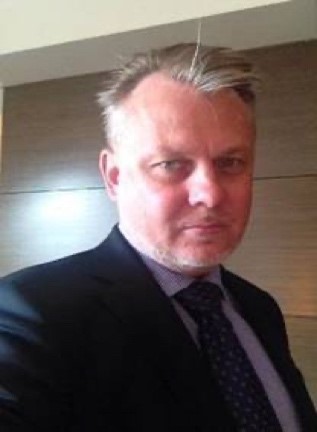 |
| Abstract:
“How can an agency that takes people’s money be so popular and appreciated?” Much of the answer to that question lies in the process of change that the Swedish Tax Agency has carried out in recent decades. Through value management and determined work with attitudes, the Tax Agency has changed from a feared tax collector into a popular service agency trusted by the public.
|
|
| Trustworthy AI – The European Approach
Fredrik Heintz, Linköping University |
|
| Fredrik Heintz is a professor of Computer Science at Linköping University, where he leads the Reasoning and Learning lab. His research focus is artificial intelligence especially Trustworthy AI and the intersection between machine reasoning and machine learning. Director of the Wallenberg AI and Transformative Technologies Education Development Program (WASP-ED), Director of the Graduate School of the Wallenberg AI, Autonomous Systems and Software Program (WASP), Coordinator of the TAILOR ICT-48 network developing the scientific foundations of Trustworthy AI, and President of the Swedish AI Society. Fellow of the Royal Swedish Academy of Engineering Sciences (IVA). | 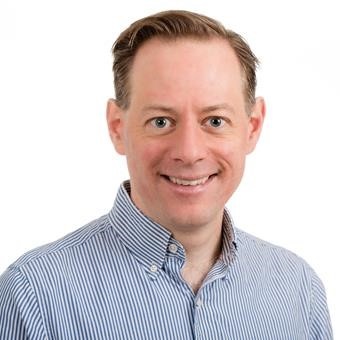 |
| Abstract:
Europe has taken a clear stand that we want AI, but we do not want just any AI. We want AI that we can trust. This talk will present the European approach to Trustworthy AI and give an overview of some of the major consequences and interesting research problems related to Trustworthy AI. The successful realization of Trustworthy AI will be paramount for addressing the major challenges we as a global society is facing. The talk is partly based on the ongoing work in the H2020 ICT-48 network TAILOR which has the goal of developing the scientific foundations for Trustworthy AI through integrating learning, optimisation and reasoning |
|
Please note that the keynotes by Frank Bannister and Anders Stridh are not available online – due to technical constraints in the venue.
PAPER PRESENTATIONS
During the paper sessions, each speaker will be given approx. 25 minutes to present and receive feedback on their paper. This means that each presentation can be about 15-20 minutes long (and may not exceed 20 minutes).
The vast majority of participants will participate onsite in Linköping, meaning that most paper presentations will take place in person. Due to the Covid-19 pandemic and its effects, a smaller number of our participants need to participate online. Online participation is possible for all paper sessions (both for presenting and for listening to presentations). All session rooms (Flexsal A, SH62, SH63) are equipped with cameras and microphones. Sessions will be broadcasted using Zoom (Zoom-links will be provided in the final version of the program).
There will be two roles present in each session to support the speakers and ensure a good conference experience for everyone;
- A session chair– a person from the conference organization (typically track chairs), responsible for introducing the speakers, time keeping, and moderating the discussions. The responsible session chair is underlined in the programme above.
- A session assistant– a person from Linköping University, responsible for the technical equipment and surveilling the Zoom room.
Lastly, in order for the sessions to run smoothly, we run the presentations from a stationary computer. In other words, speakers will not be allowed to present their work using their own laptops. For this reason, the local organization needs access to the presentations before the conference:
We kindly ask those presenting papers at the conference (both onsite and online) to submit their presentations (preferably a PowerPoint file) to localhost.egov2022@liu.se no later than September 2nd.
POSTER PRESENTATIONS
- Anastasija Nikiforova – Gen Z open data hackathon – civic innovation with digital natives: to hack or not to hack?
- Lucy Temple, Gabriela Viale Pereira and Luiza Schuch de Azambuja – Building Smart City Governance Competencies: The CAP4CITY training modules
- Luiza Schuch de Azambuja – Identifying factors that influence the transition towards a smarter sustainable city: Preliminary findings of the case study of Porto Alegre, Brazil
- Zsófia Kräussl, Alexander Steen and Myriam Lapierre – Defining Governance for Public-Private Networks: A Computational Logic-based Approach
- Matheus Cruz, Betânia Santos, Flavio Diniz, Marcelo Persegona, Neyson Freire, Raissa Barcellos and Flavia Bernardini – Nursing Observatory: a platform to support public policies in the fight against Covid-19
- Francesco Mureddu and Roberto Di Bernardo – SPOTTED – Satellite Open Data for Smart City Services Development
WORKSHOPS
Workshop I: The Sustainable Implementation of Co-creation Principles and Outcomes
Efthimios Tambouris and Evangelos Kalampokis.
Welcome reception
In the first evening of the conference, we are welcomed to Linköping Castle for a shorter welcome reception. The Governor of Östergötland will greet us with a speech, followed by opportunities to mingle and socialize over canapes and drinks.
Linköping Castle is situated in city center, just next to Linköping Cathedral. A bus has been rented to take us to the castle directly aft the IFIP WG 8.5 Business Meeting. The bus leaves from behind the Zenit building at 18.15 (see conference programme).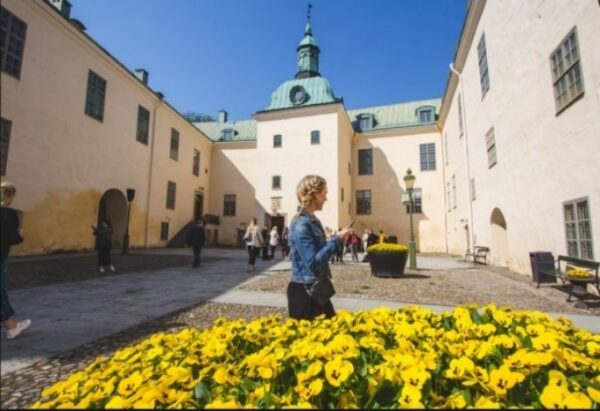
Conference Dinner
Linköpings Festvåning (Banquet Hall) is our location and host for the conference dinner. We will be served a three course dinner that is cooked with mostly locally grown ingredients, and dine in an antique setting under elegant chandaliers. For those participants that wants to socialize further after the dinner, Linköpings Festvåning houses a rustic brick cellar with a relaxed/cosy bar, just one storey below the Banquet Hall.
Linköpings Festvåning is situated at Klostergatan 45C, in a convenient walking distance from the city center. For those who wish, we will meet up at Stora Torget, at the entrance of Elite Stora Hotellet, to walk to the venue together. Meeting time: 18.15.
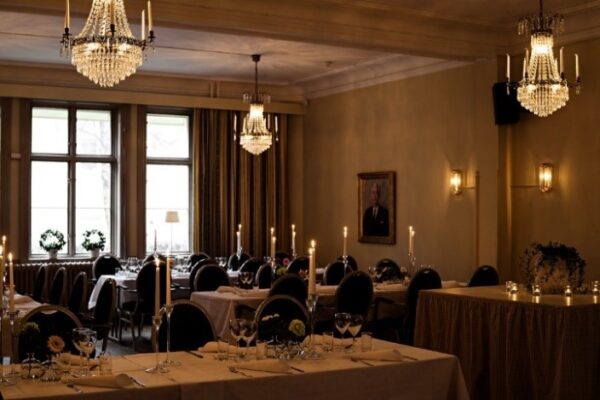
Guided tour in Gamla Linköping
In Gamla (old) Linköping Open-Air Museum, situated next to Campus Valla, you can travel back in time and experience what Swedish life was like in a small town and in the countryside a hundred or more years ago. In the old town neighbourhood you will find wooden houses surrounded by back yards, beautiful gardens and cobblestone alleys. Here too are many exhibitions, shops and crafts, restaurants and cafés.
A short walk through the Valla woods nature reserve takes you to Valla Farm, the rural part of the museum, with farm animals and houses showing the history of the countryside. In the woods, there are plenty of forest paths, as well as an experiental trail where you learn more about Swedish animals and nature.
For those who are interested, we will organize a guided tour to learn about Linköping in the early 1900, and hear stories about the lives, dreams, and destinies of the families that lived here. The tour lasts approximately 60 minutes.
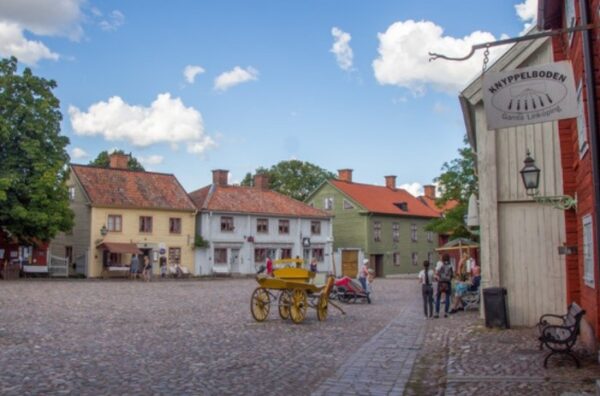
IFIP 8.5 Conference 2023: 5-7 September
at Corvinus University of Budapest
| About Corvinus | |
| Corvinus University of Budapest is the best educational institution in Hungary in the fields of economic, management and social sciences. The institution offers state-of-the-art knowledge, a professional network and a secure future for its 10k+ students. The institution builds on more than hundred years old history.
Corvinus essentially educates the social and economic elite of the region. It strives to produce scientific results that are relevant for Hungary, Europe and the world and that promote our objectives. Founders of the university believe that only talent and ambition should count – social or financial status should not prevent anyone from studying. Therefore, the Corvinus Scholarship Programme is based on excellence and was created to ensure free-of-charge education for the best, most talented students. Corvinus stands for quality and opportunities, for state-of-the art and useful knowledge, for extensive social capital, for career opportunities, for life-long friendships and community. |
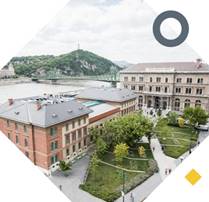 |
| Regarding numbers, the university has 120+ years of history, 10,000+ students, 1,500 international students from 80+ nationalities. The institution is reported in the Top 300 in the QS World rankings for 2021 in the fields of Business and Management, Economics, and Social Sciences. The institution has over 250 partner universities worldwide. It is an AMBA accredited Business institution and the member of CEMS in Hungary. | |
| About the Country and the City | |
 |
Hungary is a member of the European Union and is located in the heart of Central-East Europe with roughly 10 million inhabitants. Budapest is not only the capital, but it is the political, economic and cultural centre of the country.
Due to its unique natural and architectural factors it is one of the most popular tourist destinations in Europe (most airlines operate direct flights to Budapest). Each year millions arrive to admire the Castle District of Buda, the Saint Stephen’s Basilica, the Parliament building, the Synagogue in Dohány Street and to indulge in one of the famous baths. The city has good public transport system, its liveable and close to nature, and no one would feel lost here. According to The Economist, Budapest has overtaken Prague and Moscow as the most liveable city in Eastern Europe based on health, environmental, cultural, educational and infrastructural factors. |
| The Great Market Hall is one of Europe’s historic fresh food markets – incidentally, located right beside the main building of Corvinus University. | |